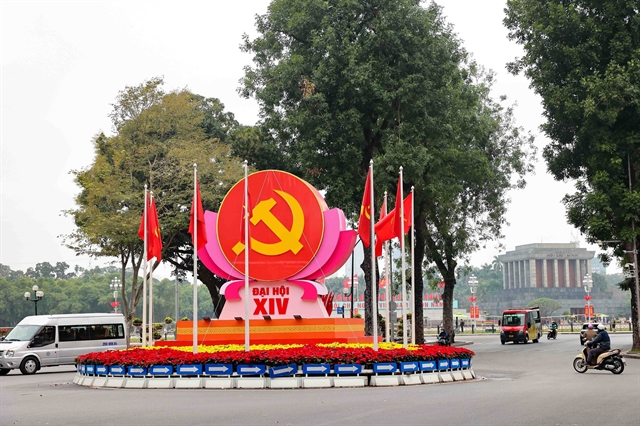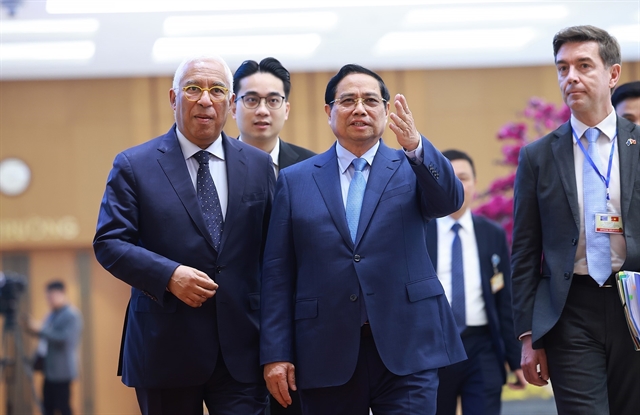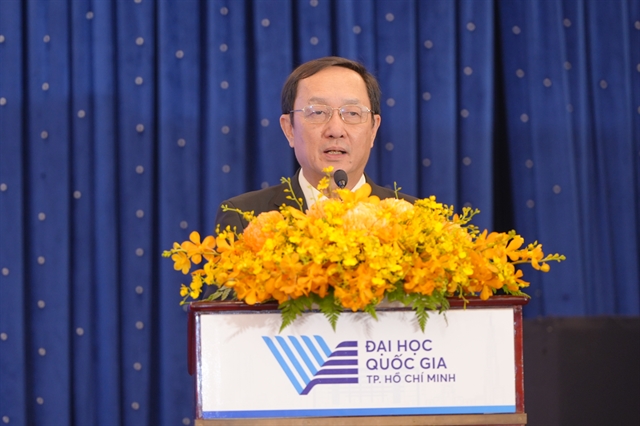 Economy
Economy
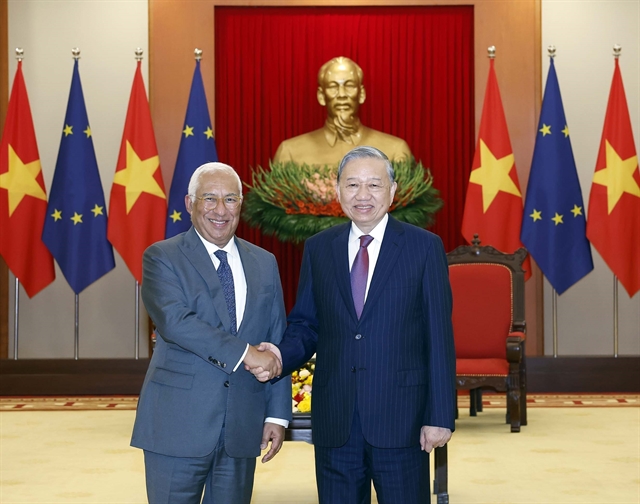
HÀ NỘI — New rules enabling foreign investors and organisations to trade without pre-funding, coupled with the prospect of elevating the stock market to the emerging FTSE index, are drawing foreign investors to the securities group.
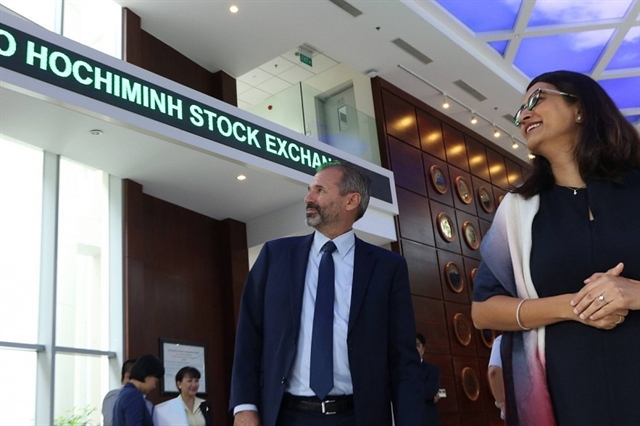 |
| Foreign investors are returning to the Vietnamese stock market. — Photo thoibaotaichinhvietnam.vn |
Ramp up stock acquisitions
Vietcap Securities JSC (VCI) has just announced a resolution to issue privately 143.6 million shares, equivalent to 25 per cent of the outstanding shares, for VNĐ28,000 per share (US$1.14).
The price is significantly lower than the stock market price of VNĐ36,600 per share on Monday.
The list of prospective investors for the offering includes 66 individuals and organisations. Notably, Pyn Elite Fund, a foreign fund from Finland, is the largest institutional investor with a registered purchase of 21.5 million shares, representing 15 per cent of the total offering, 2.99 per cent of post-issue capital.
In a letter to investors, Petri Deryng, the fund's Managing Director, said that Pyn Elite Fund participated in a private placement of one of Việt Nam's leading brokerage firms at an attractive price compared to market prices.
The issuance of new regulations by the Ministry of Finance (MoF) allowing foreign institutional investors to trade stocks without the need for full payment when placing orders is a significant driver behind this investment decision.
The change will take effect in early November and is likely to significantly boost the activities of institutional investors in the Vietnamese stock market.
Several other foreign funds are actively buying VCI stocks in large quantities.
For example, Apolo Asia Fund from Malaysia is purchasing 12.7 million shares, ACM Global Fund from Singapore is acquiring 8.5 million shares, and VEIL is buying 7.5 million shares.
Foreign investors also increasing their holdings in top brokerage firms, such as SSI Securities Corporation. The second-largest brokerage firm has seen significant foreign buying activity, with foreign investors acquiring shares in nine out of ten recent trading sessions.
Particularly, after the MoF's Circular 68 allowing orders without pre-funding, foreign investors bought over eight million SSI shares, spending approximately VNĐ800 billion (US$32.6 million) over the past ten sessions.
Shares of Hồ Chí Minh City Securities Corporation (HCM) have also been consistently bought by foreign investors since September 18, with a net purchase exceeding VNĐ280 billion ($11.4 million).
Other securities like Saigon - Hanoi Securities JSC (SHS) and MB Securities (MBS) have also attracted foreign investment but with lower net inflows.
Caution on potential risks
Analysts said the change in Circular 68 could elevate Việt Nam's market status and attract foreign net buying.
Securities firms stand to benefit, explaining the recent influx of foreign capital into this stock group despite higher valuations. However, these firms must also brace for increased market volatility and systemic risks due to the new regulations.
Vũ Mạnh Hùng, an analyst at VNDirect Securities Corporation, said that the securities industry stands to gain by catering to more foreign institutional investors, leading to increased brokerage revenue with rising liquidity.
On the other hand, there are underlying risks like delayed settlement due to foreign institutional funds settling post T+2 after purchase, Hùng added.
In response, securities firms must bolster risk management concerning clients, margin ratios, market conditions and appropriate lending ratios.
While these risks are mitigated by the credibility of foreign entities and the long-term investment focus in the domestic stock market, ongoing competitive pressures may elevate these risks.
VNDirect suggests that to attract foreign institutional investors, securities companies can compete based on transaction fees, advance capital ratios (core capital/total purchase value), total value of advance capital and service quality (information and reporting).
Securities companies can provide capital to foreign institutional clients, who will only face transaction fees, while lower advance capital ratios offer a competitive edge.
A firm's equity capital, especially for those with a larger structure, is crucial. This necessitates securities firms to increase equity capital within the 5x debt-to-equity ratio limit.
According to VNDirect, large-scale securities companies with low fees and competitive advance capital ratios will gain from attracting foreign institutional investors. — VNS

